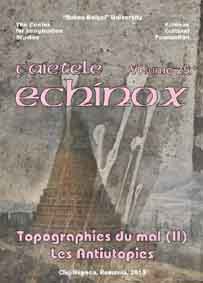La katábasis classique et sa projection dans la littérature argentine
Classical Katabasis and its Prevalence in Argentine Literature
Author(s): Hugo Francisco BauzáSubject(s): Literary Texts
Published by: Universitatea Babeş-Bolyai
Keywords: Descent to the Underworld; Mythology; Dystopia; Classical Antiquity; Modern Argentine Literature.
Summary/Abstract: The descent to the underworld, or katabasis, is a well-documented mytheme and a wide-spread literary topos; due to the influence of such canonical authors as Homer, Virgil or Dante Alighieri, it has become one of the prominent symbols for human mortality. Nonetheless, the typical descent to the underworld is not limited to describing the hopeless land of the dead. The hero, during katabasis, might encounter lands of serene happiness, which can be etymologically classified as utopias (eutopia, “happy place”). Modern Argentine literature, on the other hand, as this paper implies, developed a different conception of the katabasis, one in which the hero is more likely to encounter dystopian literary landscapes. Writers such as Ernesto Sábato, Jorge Luis Borges, Abelardo Castillo and Leopoldo Marechal have all remodeled in their prose fiction the descent to the underworld in response to an increasing postwar skepticism toward human nature.
Journal: Caietele Echinox
- Issue Year: 2013
- Issue No: 25
- Page Range: 9-20
- Page Count: 12
- Language: French
- Content File-PDF

